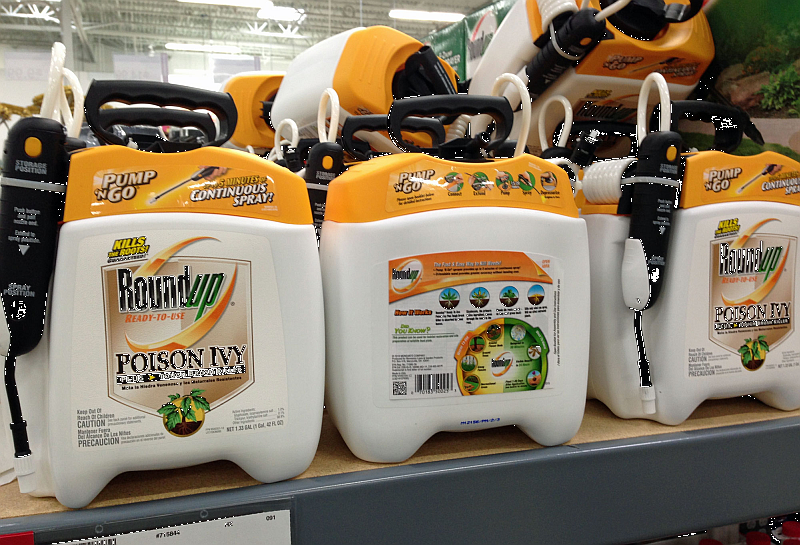Written by Natascha Deininger, Young Friends of the Earth Flanders
Today, the results from tests carried out by Friends of the Earth reveal that almost half of Europeans sampled contain traces of the weed killer glyphosate in their urine. Glyphosate, found in Monsanto’s ‘Roundup’, is the world’s best-selling herbicide, and is applied especially in connection with genetically modified (GM) crops. Despite its extensive use, glyphosate levels are barely monitored in food and water, and virtually never in humans.
Glyphosate at higher levels is toxic to the human body, while continued exposure to low-levels of the compound are largely unknown. However, in recent years research suggests that even low-level exposure may interfere with the human hormonal system, potentially leading to birth defects and DNA damage.
RoundUp and other herbicides have detrimental effects on biodiversity, by furthering monocultural GM-crop production, while killing nearby species and potentially polluting connected water ways.
Currently, fourteen glyphosate resistant GM crops are waiting for approval in the European Union. Some estimates suggest that if given the go-ahead, glyphosate use could increase by as much as 800%. Meanwhile, the process of determining safe levels of glyphosate for humans (acceptable daily intake) are all but transparent and susceptible to industry lobbying – Monsanto and others having succeeded in pushing safe levels higher since its introduction.
Young Friends of the Earth Europe wants to know why there is glyphosate in our bodies, and what the long-term effects of continued exposure are for humans and nature. Given the ubiquity of glyphosate in our environment, Young Friends of the Earth demands that its use is rigorously and independently monitored to forego a chemical time-bomb being left for future generations.

